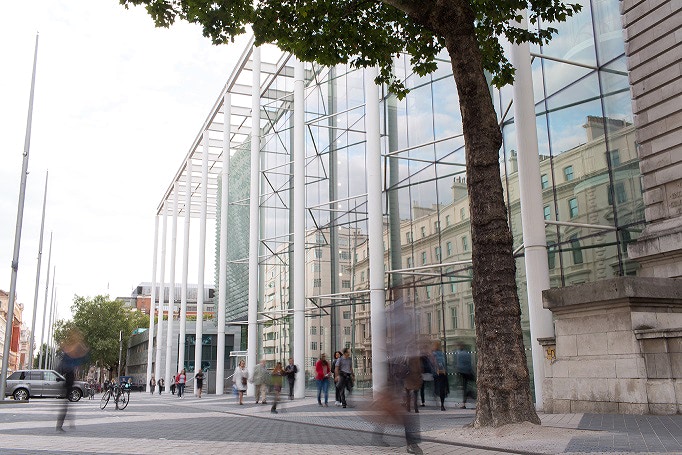Imperial College Business School achieves equal numbers of men and women to its Masters in Finance

Imperial College Business School has for the first time recruited 50 percent women to its Masters in Finance programme, in the 2017/18 academic year.
The programme, which celebrates its 20th anniversary this year, has 46 women in its current cohort who hail from 19 different nations including: Bahrain, China, France, Mauritius, Mexico, Romania and Senegal. Master’s students come from a range of spheres including economics, engineering, finance, mathematics and from different science disciplines.
Fiona Sandford, Interim Associate Dean at Imperial College Business School, said: “Developing students to be inclusive future leaders is important to the Business School and the wider College. Having a more diverse student cohort makes for a more enriched study experience for both male and female students and helps all students become better team players and future leaders.”
Imperial College Business School has taken a number of steps in recent years to encourage greater diversity across its programmes. These include introducing women’s information sessions, networking and breakfast events for current and prospective students and alumni.
The Business School has also established a partnership with the Forté Foundation, a non-profit organisation that champions women’s progression within business through access to education. Imperial offers Forté Fellowship scholarships to outstanding female students joining its Full-Time MBA. Imperial is also a member of the 30% Club – a women’s advocacy group that provides scholarship funding for women to study business master’s programmes.
The school has also been the recipient of an Athena SWAN bronze award, for tackling gender inequality.
Dr Lara Cathcart, the Business School’s Associate Professor of Finance and Academic Director of Masters in Finance programme, said: “This is a very encouraging sign that things are changing and that the finance industry is becoming more attractive to women. The emergence of new careers in areas such as fintech has probably contributed to this shift in attitude, as more women recognise the diverse number of careers that can be entered into with this degree.”
Imperial’s Masters in Finance is a one-year programme that prepares recent high-calibre graduates for a wide range of careers in the financial services sector. The programme was ranked first in the UK in 2016 and is currently ranked 12th in the world by the Financial Times. The average salary for students three years post-graduation is £69,643. The programme is also ranked second globally by eFinancialCareers for students getting a job in investment banking.
Highlighting the programmes reputation with employers, Benedicte Aune, a female graduate of the 2016/17 MSc Finance, said: “I chose to enrol in the MSc Finance at Imperial because it is highly respected by financial services employers and is in the heart of London, providing access to the world’s top banks. Since graduating, I have secured job offers from two investment banks including Morgan Stanley where I currently work as an off-cycle analyst. The degree played a big part in my career success and it was absolutely worth it.”
About Imperial College London: Imperial College London is one of the world’s leading universities. The College’s 16,000 students and 8,000 staff are expanding the frontiers of knowledge in science, medicine, engineering and business, and translating their discoveries into benefits for society.
Founded in 1907, Imperial builds on a distinguished past – having pioneered penicillin, holography and fibre optics – to shape the future. Imperial researchers work across disciplines to improve health and wellbeing, understand the natural world, engineer novel solutions and lead the data revolution. This blend of academic excellence and its real-world application feeds into Imperial’s exceptional learning environment, where students participate in research to push the limits of their degrees.
Imperial collaborates widely to achieve greater impact. It works with the NHS to improve healthcare in west London, is a leading partner in research and education within the European Union, and is the UK’s number one research collaborator with China.
Imperial has nine London campuses, including its White City Campus: a research and innovation centre that is in its initial stages of development in west London. At White City, researchers, businesses and higher education partners will co-locate to create value from ideas on a global scale.











Responses